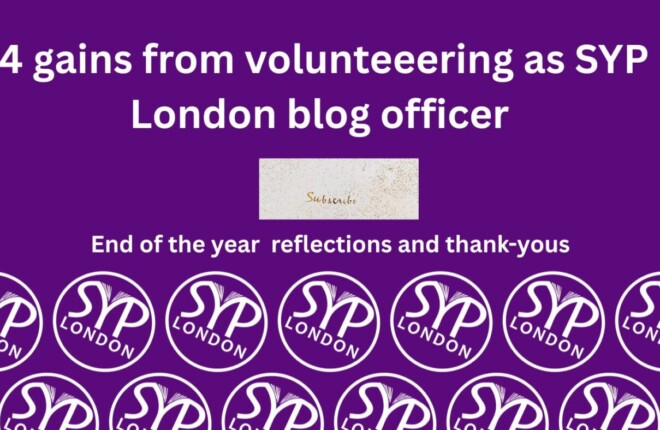
Imposter Syndrome
Posted on August 28, 2019 in London

Imposter Syndrome is defined by the OED as ‘the persistent inability to believe that one’s success is deserved or has been legitimately achieved as a result of one’s own efforts or skills’, and is experienced by approximately 70% of people at some point.
I can think of so many times when I’ve achieved something I’ve worked really hard for and suddenly felt like I was taking the place of someone who deserved the spot more, or who actually belonged in that environment. I managed to convince myself that all the work I’d done to get where I am had been some kind of fluke or a result of my Grandma’s daily prayers to Waheguru rather than something I deserved. When it started affecting my day-to-day life, I figured it was time to fight back. But it can be difficult fighting against a feeling without first identifying its root causes.
How to tell the difference
The danger with imposter syndrome is that by slapping its label on any thought of self-doubt, we flatten the complexities and pervasiveness of prejudice in our society. We’re told that the low self-esteem that comes with Imposter Syndrome is an entirely internal condition only we can correct. But for some of us our self-confidence is also influenced by our experiences as people living with often multiple marginalised identities.
So, you may find that you need to properly identify what is affecting you in order to correctly treat it, whether that’s through self-care, or by helping to de-homogenise a white, middle-class, London-centric system. Is it ‘all in your head’, is it your environment – or both?
Here are some ways you might be able to tell:
- Log when you feel your suspected Imposter Syndrome flare – is it after talking to particular colleagues? Do you feel unwelcome or othered after certain meetings? By keeping a record, you may be able to spot a pattern and determine if the trigger is internal or external.
- Talk to other people in your position – do they often feel the same way around the same times?
- Think about if things were different, if you could reset all of publishing and rebuild it from the ground up – would it make a difference? Could you make a difference?
Once you’ve figured that out you can devise a plan of action.
Ways to battle Imposter Syndrome
- Talk to others about it – we have this gorgeous community at the SYP, but also talk to your colleagues. Creative Access has a great support network as does the BAME in Publishing Network and Pride in Publishing.
- Ask for a mentor – sometimes you need someone to keep you focused on how brilliant you are, and how to move forward while battling Imposter Syndrome.
- At the end of the week, reflect on all the great things you’ve done and take a moment to really be proud of yourself.
- When you notice Imposter Syndrome flaring up respond to each of the harsh thoughts you’ve had about yourself in the same way your guardian angel might.
- When you feel you need it, remind yourself that you deserve to be here, you work damn hard, and you are going to succeed – repeat this mantra until you start to believe it.
- Understand that you aren’t in the wrong place – you bring a new perspective and a new voice that deserves to be heard.
Ways to change the system:
If the system is making you feel unwelcome, it’s time to change it. You need to take control of the narrative: you’re not an imposter, you’re a disruptor. There is a lot power in flipping the script in order to change the way you see yourself in an environment. Here are some ways to do that:
- Arm yourself against the system you’re caught in – read up on how other change-makers have started the ball rolling. Books like Slay in Your Lane, Difficult Women and Little Black Book are all great places to start.
- Organise – if you’re feeling this way because of your environment, chances are that you’re not the only one. Creating a safe community where you can pool your experiences is a great start.
- Identify the main ways you feel unwelcome and, if you want, brainstorm ways to make your environment more inclusive.
- Connect with other innovators in the industry – THRIVE Hachette, Pride in Publishing, Women in Publishing and Creative Access are all places where you will be able to get great advice on how to tackle these problems within a business environment.
- Make sure that you are taking time to be in a safe, welcoming environment beyond the workplace – you shouldn’t have to be in a constant fight to exist. Self-care is number 1.
Conclusion
Being able to distinguish between experiencing Imposter Syndrome and the externalised pressures of a prejudicial hierarchy is a vital skill to have. Imposter Syndrome is a serious problem that many people struggle with; but sometimes there are times when you should understand that you are invading a space – because people who look like you have not always been made to feel welcome. The publishing industry needs these kinds of ‘space invaders’ to grow and adapt so that people from all backgrounds have the freedom to put forward ideas and make changes, as well as the internal sanction to do so. The more people there are in publishing who are able to spot these differences, the healthier, more adaptable and productive we’ll all be.
By Sim Sandhu and Cameron Myers




 Listen to the podcast
Listen to the podcast  Explore the Youtube channel
Explore the Youtube channel